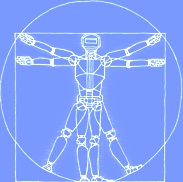
Morphological and Behavioral Adaptation in Robotics
Hod Lipson, Cornell UniversityRobotic systems are of growing interest both because of their many practical applications as well as their ability to help understand human and animal behavior, cognition, and physical performance. Though industrial robots have long been used for repetitive tasks in structured environments, one of the long-standing challenges is achieving robust and adaptive performance under uncertainty. This talk will examine two approaches for achieving adaptation in robotic systems: One involves adaptation of behavior, based on the notion of self-modeling; the second approach involves adaptation of morphology: From reconfiguring to self-repairing systems. Several implementations on virtual and physical robots will be shown, as well as the underlying computational challenges.
For adaptive behavior, we use a combination of reinforcement learning and active learning, so that a robot can reconstruct its own body plan by from observed actuation-sensing relationships. Robot actions that cause disagreement among predictions of different candidate models are used for inference because they elucidate uncertainties; actions that cause agreement among predictions of different models are used for robust control as they avoid uncertainties. This process will be demonstrated for virtual and physical robots as they go through damage. Other applications of this process, such as for system biology networks, will also be shown. For adaptive morphology, several new concepts will be overviewed, ranging from printable machines, to stochastically reconfiguring systems, as well as concepts based on statistical mechanics.
Biography
Hod Lipson is an Assistant Professor of Mechanical & Aerospace Engineering and Computing & Information Science at Cornell University in Ithaca, NY. He directs the Computational Synthesis group, which focuses on novel ways for automatic design, fabrication and adaptation of virtual and physical machines. He has led work in areas such as evolutionary robotics, multi-material functional rapid prototyping, machine self-replication and programmable self-assembly. Lipson received his Ph.D. from the Technion - Israel Institute of Technology in 1998, and continued to a postdoc at Brandeis University and MIT. His research focuses primarily on biologically-inspired approaches, as they bring new ideas to engineering and new engineering insights into biology.
See also http://www.mae.cornell.edu/lipson.
